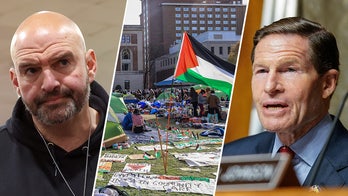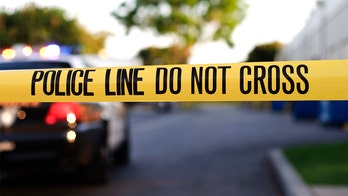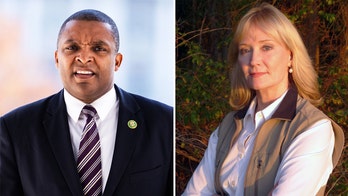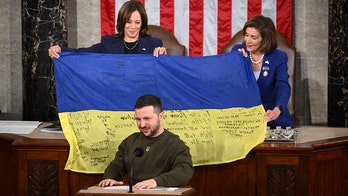As President Obama returns to his adopted hometown of Chicago to give his farewell speech Tuesday night, a dark cloud hangs over the city where the record-setting murder rate is so high there are pleas to declare a state of emergency.
“When there is a fire in America, a tornado, a hurricane, they call it a state of emergency, federal funds come in, and help rebuild that town or that community,” said prominent anti-crime activist, Father Michael Pfleger. “Well, hell, we have a state of emergency in Chicago.”
In 2016, 762 people were murdered in Chicago. That’s a 63 percent increase from the 468 murders recorded in 2015 and almost double the murders in 2014, according to Chicago Police.
Shootings also are way up -- 4,331 people were shot in Chicago in 2016, up from 3,550 in 2015, according to police.
In recent months, the president has been mostly quiet about an aggressive solution to Chicago’s violent crime epidemic. The city saw more murders in 2016 than New York and Los Angeles combined, yet is considerably smaller in population than either city. Chicagoans wonder if the president will address the city’s crime – the “elephant in the room” – during his speech Tuesday night.
"I cannot recall a time that President Obama said directly about Rahm Emanuel that he needs to do something about this violence,” said Chicago community leader and activist Pastor Corey Brooks.
In a series of interviews last week previewing his speech and visit to Chicago, Obama discussed the city’s carnage, noting a lot of the crime is happening in the “backyard” of the home he and the first lady own on the city’s South Side.
“We've been trying even from the federal level to provide assistance to the city. I don't think that we're going to be able to reverse these things overnight,” Obama said. “On the other hand, the fact that crime overall is much lower around the country when it was when I took office and that Chicago is the one big city where you've seen this huge spike means that there's something specifically happening there and that means we can fix it if we work together.”
Community leaders all agree Chicago’s violent crime and murder rate is unacceptable but the exact cause and how to fix it is a matter of debate. The issues most often pointed to are the city’s uncontrollable illegal gun market, gang wars, cheap heroin and increasing disrespect for law enforcement.
Former Chicago Police Superintendent Garry McCarthy, who is credited with a drop in the city’s crime up until 2015 through his community-policing approach, says officers haven’t felt a ton of support from the Obama administration.
“I can't help but just look at criminal justice, and criminal justice in this country has not had a friend in the federal government during this administration," McCarthy said.
Lori Lightfoot, president of the Chicago Police Board—an independent entity tasked with investigating complaints into misconduct and corruption—says Chicago’s crime is not something police can arrest their way out of and requires all levels of the government and community to work together beyond analyzing crime stats and police performance.
“We need to make sure we are out there with job training, everything we can to drive down unemployment, make sure kids aren’t living in poverty, good schools,” Lightfoot said. “This really does take a multi-faceted approach.”
President-elect Donald Trump has already weighed in, making headlines when he tweeted that Chicago Mayor Rahm Emanuel should seek federal help if he can’t fix the city’s crime—which also raises the question if policing in the city and even nationwide might grow beyond a state and local operation under the Trump administration.
“President-Elect Trump is directly putting the ball in the mayor’s court and that’s the way it should be,” Brooks said.
Emanuel’s spokesperson replied to the Trump tweet with a statement, in part writing, “As the president-elect knows from his conversation with the mayor, we agree the federal government has a strong role to play in public safety…we are heartened he is taking this issue seriously and look forward to working with the new administration on these important efforts.”
All this comes as the Department of Justice is in the midst of a patterns and practice investigation into the Chicago Police Department for allegations of racism and police brutality. This follows the release of a highly controversial, graphic dash cam video depicting a Chicago police officer shooting and killing 17-year-old Laquan McDonald.
The DOJ’s findings are expected to be released before or shortly after the inauguration of Trump on Jan. 20 and could result in an expensive Consent Decree with CPD that will continue to keep Chicago’s crime problems in the national spotlight.
Pfleger said he reached out to Trump during the campaign but did not hear back. He says he hopes the DOJ’s findings and the new administration could make a difference in Chicago.
“The question being will they reach out and want to really see some substantive changes and make a difference or do they just want to continue to Band-Aid,” Pfleger said.




